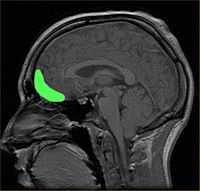When I first arrived at the Headway Centre, I quite was surprised to walk in and find a relatively small area, which had a very home-like, casual and welcoming feel. Excited for my shift, I was a little early which worked out great because I got the chance to meet with the four members who were there that day, just as they were finishing up breakfast. I immediately noticed that similar to the member who had spoken to our class in the beginning of semester, there were no signs of physical injury; everyone was chatting and eating their pancakes and were extremely friendly when I joined in. However once I started talking to the members, I began to notice that there was a wide range of cognitive and language functional abilities among them.
Two members in particular appeared to be very high functioning, one shared with me that he was going to work later, and I was pleasantly surprised at our initial conversation at the breakfast table where we chatted about topics ranging from movies, to the Olympics, to places in the world we would like to visit. During breakfast I noticed that one member was rather quiet and hadn’t engaged in the conversation, so I decided to sit with him before we started Bingo. He seemed to have impairments to his speech production, however this didn’t stop us from having a great time as he taught me how to play a game on his iPad by pointing at the icons, and later shared his ‘secret handshake’. Following breakfast, I set up and led the Bingo game on my own which I thoroughly enjoyed because it gave me the opportunity to learn to adapt based on the range of functional levels. I noticed that the quieter member was having difficulty processing the numbers and placing chips on his card (perhaps indicating impairment to language comprehension as well), which taught me the importance of being aware of who might need extra assistance while also being able keeping the game engaging and fun for everyone.
In class we discussed the possibility that patients with TBI might display impulsivity and impaired social awareness. In lieu of this, I was actually quite surprised at how socially appropriate and patient the members were, so when I got home, I did some research and learned that distractibility and impaired decision-making after a TBI is largely associated with frontal lobe damage, specifically related to a portion of the prefrontal cortex called the orbital frontal cortex (Rolls et. al, 1994).
Though it is hard to get a full sense of the impact of their injuries in just a few hours, I am curious whether the members do experience these symptoms, or whether the difference may be due to the nature and location of their injuries. In any case, I was pleasantly surprised by the jovial relationships the members seemed to have, joking around with each other and the volunteers, and I am excited for my next shift!

